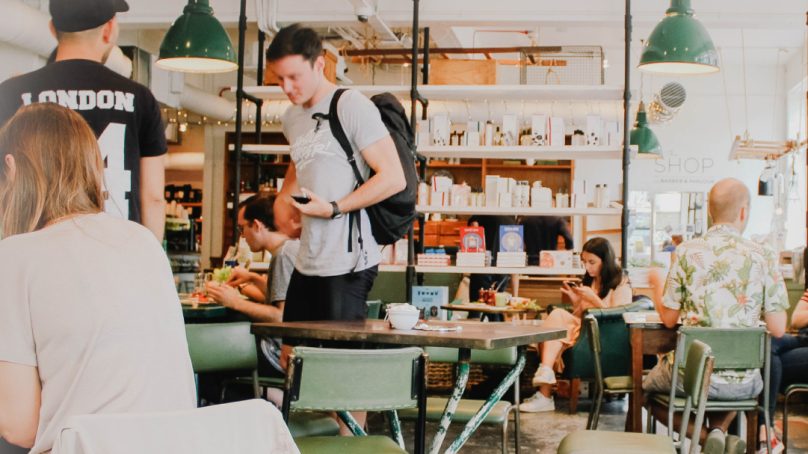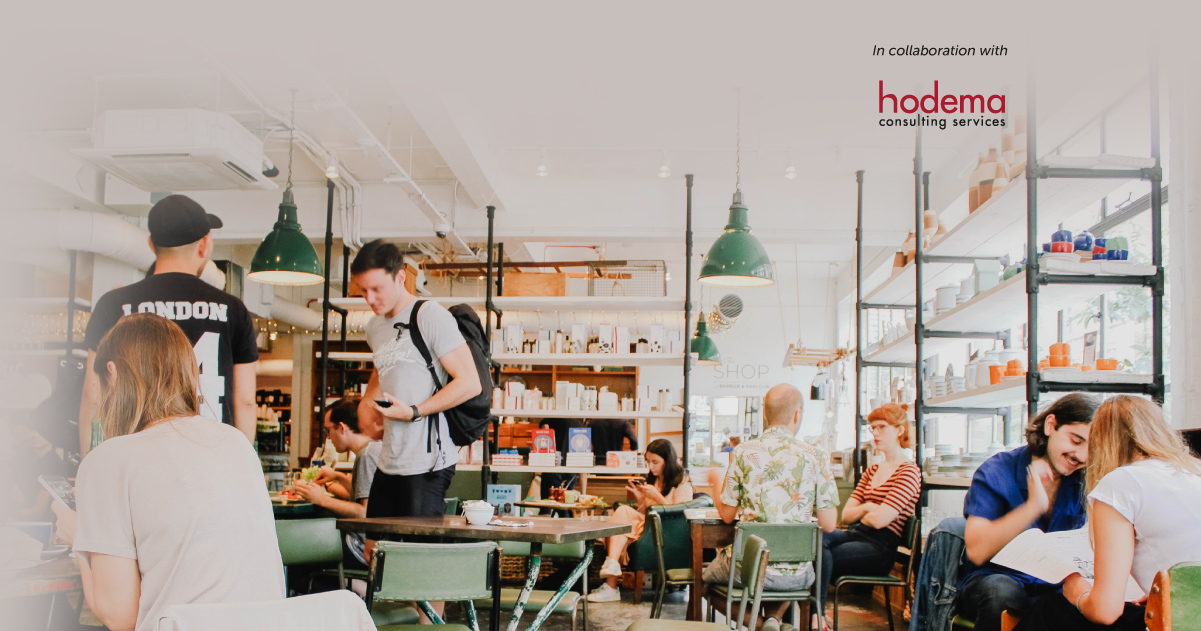

In recent years, Gulf countries have established themselves as the number one destination for global corporate, sport and leisure events. The coffee business, long popular in the US and Europe, has found itself carried along in the momentum of this Middle Eastern takeover.
In January, Dubai hosted the “World of Coffee” trade show for the second consecutive year, bringing the global industry’s java experts to the UAE, removing any doubt that the region has now rightfully claimed its place alongside the leading coffee market players.
That said, Arabic coffee has long been one of the keystones of the region’s culture for all social tiers, even receiving UNESCO Intangible Cultural Heritage status in 2015. It is only more recently that the presence of expats in the Gulf has added another dimension to the local coffee scene, resulting in new options being offered alongside traditional ones.
From popular coffee houses also serving hooka pipes and juices to small takeaway kiosks and roadside vans, the regional coffee landscape has evolved to include trendy cafés serving a wide range of specialty coffees, with numerous successful international brands choosing to put down roots.
Dubai remains centerstage
The long-established presence of global franchises in the emirates, pioneered by Dunkin’ Donuts in 1997 and then RAW Coffee Company with its specialty coffee, helped the market to embark on a strong, steady growth path.
Building on Dubai’s status as a hub for global trends, the authorities opened the Dubai Multi Commodities Centre with the aim of “positioning Dubai at the heart of the world’s leading coffee supply chains.” The free trade zone provides storage for the beans, processing, roasting, packing and delivery, while also acting as a go-between for producers and retailers. In addition, the center gives access to training programs set up by the Specialty Coffee Association. Dubai also houses the first roastery in the region, titled Coffee Planet, which was launched in 2005 as a chain of stores, diversified its activities in 2008 and can now produce 300 tons of coffee and 3 million capsules per month.
Roasters have multiplied in the UAE in recent years. CAFINTO, RAW, Gold Box and Alchemy Coffee have joined Coffee Planet in roasting beans. Created in 2010, Café2go was one of the first UAE-born brands. The company has already expanded into Qatar and Libya, and is now eyeing the rest of the region. Other local brands include Slash Coffee, Shot Specialty Café and Joud Coffee.
Saudi Arabia, the new coffee nation
Saudi Arabia is playing a pioneering industry role, producing its own coffee from plant to cup, rather than importing beans like
its neighbors. The Saudi “Khawlani” beans might be a mystery to many coffee lovers, but the government took steps to bridge a key gap last year when it named 2022 the Year of Saudi Coffee. The Kingdom set out to promote its local production to both domestic consumers and global investors via the Saudi Coffee Company, managed by the Public Investment Fund (PIF), last year through large advertising campaigns. Jeddah’s Coffee Festival, meanwhile, also revealed a growing interest among locals.
for specialty coffee. According to the PIF, consumption is expected to increase steadily by 5 percent each year to reach 28,700 tons in 2026.
There are currently about 2,500 coffee plantations located across the Jazan, Aseer and Al Baha regions. With its mild climate, Al Baha has been selected as the country’s next coffee hotspot, with a “development city” in the works. For now, most of the beans are exported to neighboring countries, such as the UAE and Yemen.
Brands hold their own
The World Coffee Portal, one of the industry’s primary information sources, forecasts that the Middle East’s branded coffee shop market will reach 11,840 outlets in 2027, representing five-year growth of 5.9 percent, with Saudi Arabia accounting for 40 percent of all branded outlets in the region.
Starbucks remains well ahead of the competition, covering more than 70 percent of the region’s market and with more than 1,000 stores, followed by others that include Dunkin’ Donuts (788 outlets), Costa Coffee, the Coffee Bean & Tea Leaf and Caffè Nero. Taking third place in terms of outlets is Barn’s (431 stores), a Saudi brand which was one of the first drive-thrus in the 1990s. Other names of note include Café Bateel, which received a nod at the World Culinary Awards in 2021, and Overdose Coffee, which owns 30 outlets across the Kingdom. Bafarat, a landmark in Jeddah, has now opened in London.
Outlets flourishing far and wide
Iraq is the surprise addition to the countries on the fastest-growing markets list regionally, recording a 16.7 percent increase in the number of outlets opened last year. US-based Cinnabon is a new name, having just launched in Baghdad.
Kuwait is a competitive and also mature market. According to the World Coffee Portal, the sector is home to 655 outlets, with figures indicating a rise of 11.8 percent last year. Starbucks (franchised
to Alshaya Group), Costa Coffee and Caribou Cafe have the lion’s share of the market. Canadian Tim Hortons and British Pret A Manger are recent openings. The most prosperous local brand is Caf Cafe, which doubled its outlets last year to 26. Independents, such as Blank Sphere, Grind Coffee Co. and 50 Degrees Espresso House have also made their mark.
In Egypt, Cilantro and Qahwa are attracting crowds, with the market remaining dynamic, while small traditional Arabic coffee kiosks also continue to be highly popular. Jordanian Tche Tche and Caffé Strada are in vogue among youngsters and in Qatar, Meesh Cafe and Mokarabia are elbowing their way onto the busy international franchise scene. Despite its critical economic situation, Lebanon still offers a wide range of specialty coffee establishments that range from well-known international names to the local landmark Cafe Younes, BN Coffee Bar, Kalei, Sip and Concierge Coffee.
Apps and influencers support growth
In a sign that demand for delivery is going from strength to strength, the successful Kuwait-based delivery app COFE App is now connecting java drinkers to 700 branded coffee shops across Kuwait, Saudi Arabia, Egypt and the UAE.
Looking ahead, international names are expected to keep doing well, while mid-sized and independent coffee shop operators are poised for further growth, according to the World Coffee Portal. The rise of “coffee influencers” on social media adds a glamorous aspect to the industry, although challenges, including inflation and possible market saturation, hover in the background as risk factors.

Nagi Morkos
Founder and Managing Partner
Hodema













